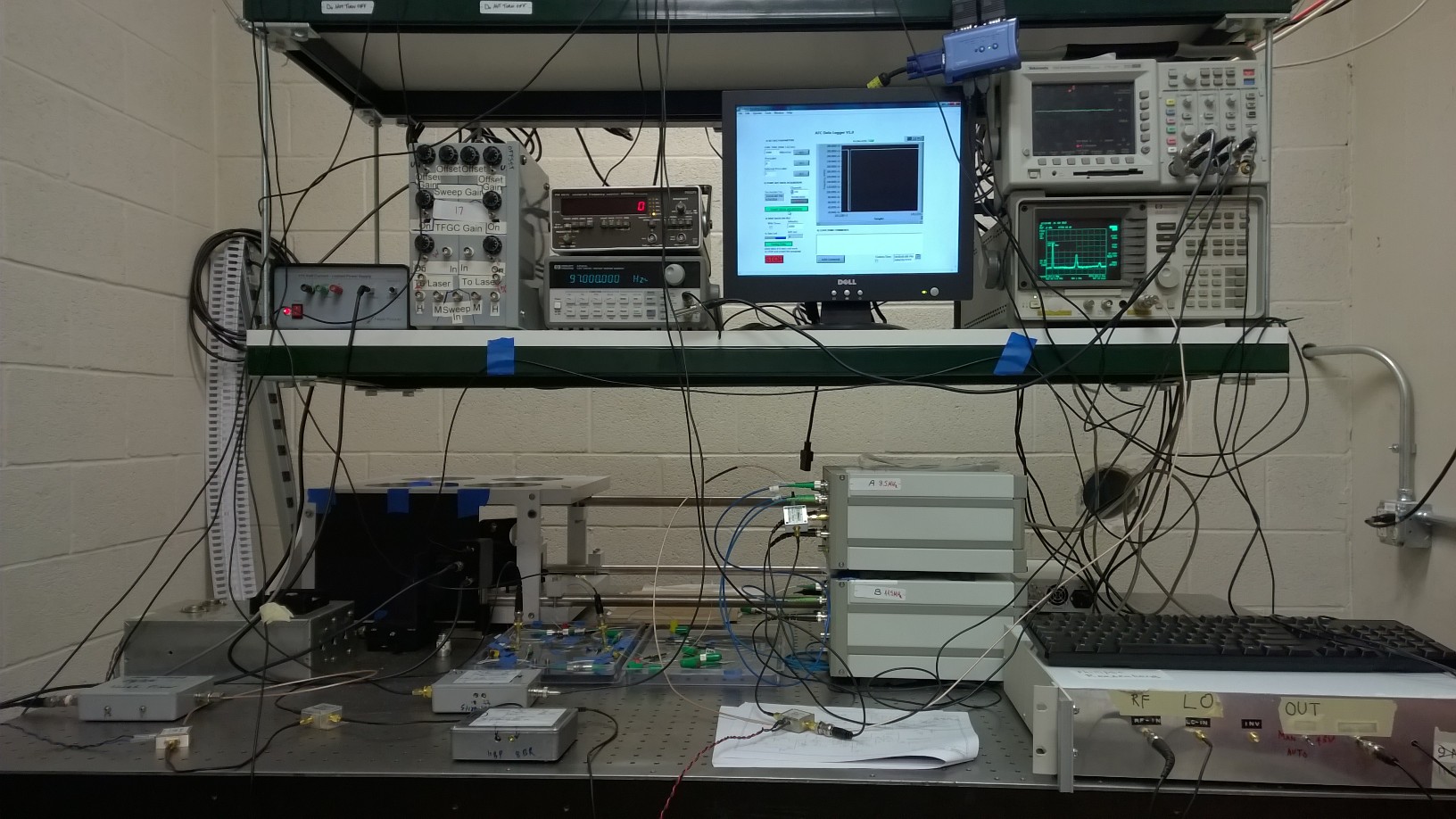Led by Physics Professor Dan Kaplan, the Illinois Tech Muonium Antimatter Gravity project has demonstrated picometer precision for its instruments, an important step in their quest to test the theory of gravity using antimatter in the form of muonium.
Kaplan reported on this work at the Seventh Meeting on CPT and Lorentz Symmetry at Indiana University in Bloomington, Ind., last week.
Muonium is an element with an electron orbiting a nucleus consisting of an antimuon. As described in the Guardian earlier this year, detecting the action of gravity on elementary particles is very difficult. Illinois Tech’s project is the only one in the world to attempt to do it with muonium.
Muonium is unstable, living only 2.2 microseconds on average. Measuring it requires extreme sub-nanometer precision.
To check their ability to achieve and repeat that precision, Kaplan and his team, including undergraduate and graduate students, assembled and tested two semiconductor-laser Tracking Frequency Gauges developed at the Harvard-Smithsonian Center for Astrophysics by collaborators James Phillips and Robert Reasenberg and donated to Illinois Tech last year.
Using a technique akin to that of the Laser Interferometric Gravitational Observatory (recently used to observe the merger of distant black holes), the team demonstrated precision and stability better than 100 pm measured over a millisecond and better than 3 pm measured over a second.
“We have thus duplicated a result previously obtained at CfA, demonstrating the robustness of the TFG equipment and technique, as well as our own mastery of it. This is a crucial first step on the way to an antimatter gravity interferometer,” said Kaplan. “Next steps will include improving the setup and using it to make new measurements, extending what the CfA group achieved.”
While most scientists expect antimatter to behave gravitationally just like matter, and thus fall down, towards the Earth, this belief has never been directly tested. If antimatter on Earth falls up, our theories of gravity, cosmology, and the evolution of the universe will all need to be revised.

